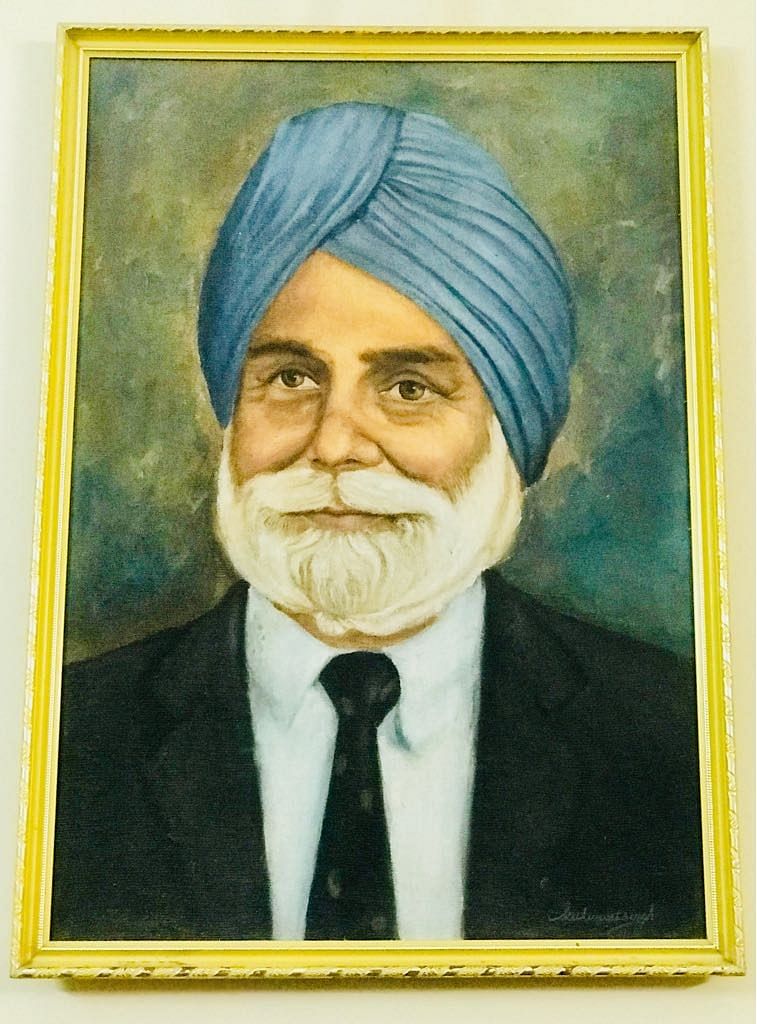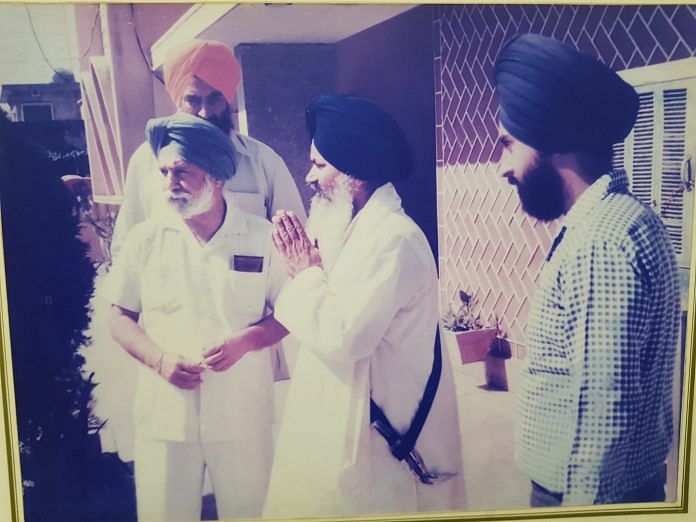Malkiat Singh Sidhu called it a ‘souvenir from Canada’ and it remained with him till he died in another militant attack in his hometown Moga.
Chandigarh: Malkiat Singh Sidhu, the former Punjab cabinet minister who survived an assassination attempt by Canadian Sikh militant Jaspal Singh Atwal in 1986, had come back home with a unique “gift”: a bullet. Lodged just next to his backbone, and so innocuously placed that the 56-year-old Akali leader decided not to have another surgery.
“It’s a souvenir from Canada, he used to say. And it remained with him till the end,” says Malkiat Sidhu’s son Jaspal. The former minister was killed in another terrorist attack five years later, this time in his home town in Punjab’s Moga.
Atwal’s presence at an official dinner of Canadian PM Justin Trudeau in Mumbai last week has brought back a forgotten chapter of Punjab’s bloody history.
“A year after my father had joined the government, he and my mother travelled to Canada to attend a nephew’s wedding,” 60-year-old Jaspal Sidhu recalls, sitting in his Chandigarh home.
“After the wedding my parents, my aunt and uncle had gone for sightseeing when their car was ambushed by muffled men and my father was shot at. He was hit by two bullets,” Jaspal adds.
A woman truck driver passing by apparently called the ambulance and Malkiat Sidhu was rushed to a hospital. One bullet was immediately removed, Jaspal says.
“The Canadian government, which took care of his health and recovery after the incident, suggested that the other bullet be removed too. But he refused to undergo another surgery. He said it is Canada’s souvenir,” Jaspal says.
Malkiat Sidhu was among the almost two dozen prospective candidates for the assembly elections announced in 1991 who were killed by militants. These elections were subsequently cancelled.
A lawyer-turned-politician
Sidhu, a moderate Akali, became a member of the Shiromani Gurdwara Parbandhak Committee (SGPC) in 1956. A lawyer by profession, he was also member of the Punjab State Electricity Board in its early days when it was chaired by R.S. Gill, father of Punjab’s former top cop K.P.S. Gill.
In 1972 during the volatile student agitation in Punjab that had its epicentre in Moga, he was arrested for backing the students and providing them legal help.
But what remained unsung was Sidhu’s sterling role as a peacenik and mediator during what was later referred to as the ‘mini Operation Blue Star’ of 1984, a potentially explosive situation that had developed in Moga barely a month before the real operation took place.
Gobind Thukral, a journalist working for India Today had reported, “The end of the tense situation in this second largest foodgrain market in India was greeted with relief in many quarters, for a catastrophic confrontation between the security forces and the Sikhs, which would inevitably have left a bloody trail, had been thankfully avoided.”
“In April during Gurpurab, hundreds of Sikhs had gathered in gurdwaras. In Moga the three main gurdwaras — Bibi Kahn Kaur, Singh Sabha and Akal Sar — were brimming with people,” recalls Jaspal Sidhu.
“The BSF had shot dead eight persons and curfew was imposed in the town. BSF commander Yadav alleged that theirs’ was only a retaliatory fire as the first shots had come from inside the gurdwara,” he says.
“Almost 700 devotees were trapped inside the gurdwaras. Food and water supply to the gurudwaras was cut off. BSF was insisting that they wanted to enter the gurudwaras and check for arms and ammunition and maybe also militants hiding inside.”
“As days passed, the situation worsened and people from nearby areas started reaching Moga with food for the devotees inside the gurdwaras. Akal takth jathedar Giani Kirpal Singh announced that the five head priests will march with Sikh supporters towards Moga and undo the siege of the gurdwaras,” he adds.

Devotees trapped inside gurdwaras
According to the India Today report, “BSF and armed Sikhs faced one another across the parapets of gurdwaras and the Akalis threatened a massive onslaught by ‘do-or-die’ volunteers on Moga to free the beseiged Sikhs…Once it was clear that the march by the priests was no mere threat she (then PM Indira Gandhi) began serious consultations with Punjab Governor B.D. Pande and officials in the Home Ministry.”
Jaspal Sidhu says Pande sent his adviser S.S. Sidhu and the police chief P.S. Bhindar to Moga to forge a settlement. Malkiat Sidhu was part of the committee that met them.
“But the meeting ended in a naught as Bhinder dug his heels in insisting on police entering the gurdwaras,” says Jaspal.
When Malkiat Sidhu met Bhinder and S.S. Sidhu the next day. He asked Bhinder if any weapons had been found on any the eight persons killed by the BSF or if any one of them was inside the gurdwara when the firing took place.
“When Bhinder said no, S.S. Sidhu was shocked. He immediately ordered that the troops withdraw from outside the gurudwaras,” adds Jaspal.
According to Thukral’s report, “Malkiat Singh Sidhu then addressed the food-carrying Sikhs and pacified them. A little later, a group of them were allowed to take food into the gurdwaras. This restored confidence and with the lessening of tension the job of implementing the agreement became much easier. The next day, May 3, the whole operation went on as agreed.”
Malkiat Sidhu insisted that after the BSF withdrew, the devotees would be taken to their villages in buses. “And only when a bus would end its journey will the next lot be sent out. That is exactly how it was done,” says Jaspal.
But the matter did not end here. Thukral noted that a few Chandigarh news agencies were called on phone and told that 16 people wanted in connection with several cases were arrested from these gurdwaras and 13 firearms seized from them.
“This concocted information, as enquiries by India Today in Moga and Chandigarh revealed, was a face-saving device for a government which had publicly vowed not to let any wanted person escape from gurdwaras.”
‘False information’
“When this news came out, my father got a call from Sant Harchand Singh Longowal, whose party he belonged to, as also from Sant Jarnail Singh Bhindrwanwale. My father told them that the information was totally false,” says Jaspal.
The next year, Malkiat Sidhu won the Moga-2 seat defeating Darshan Singh Brar (who is now Baghapurana MLA) by almost 9,000 votes. He became a minister of cooperation and planning.
In 1991, he was the Akali candidate for two seats: Moga and Baghapurana and busy campaigning.
“I was at home sitting with my friends when I heard gun shots outside. I rushed out and a just a little away from our house, I saw two men on the ground…my father and his security guard,” Jaspal narrates.
“My father was still breathing. We rushed them to the nearest hospital but the doctor declared him dead.”
Malkiat Sidhu was cremated in the family’s ancestral village Daudhar that evening. Jaspal had lit the funeral pyre.
“We never bothered to follow up with the investigations. We had no interest in knowing who did it,” says Jaspal. “We only know he was fearless and stood up for the values he cherished. Each year we organise a sport event in his memory in Moga.”



